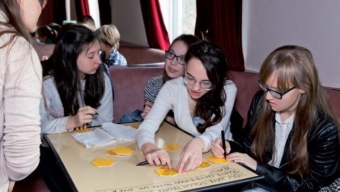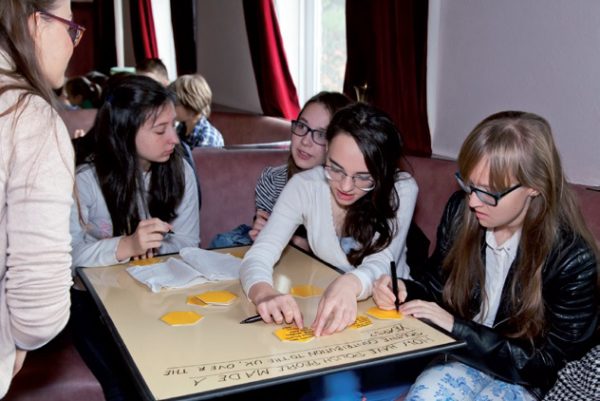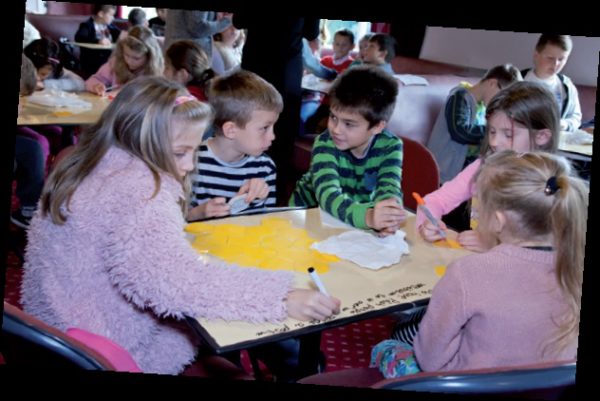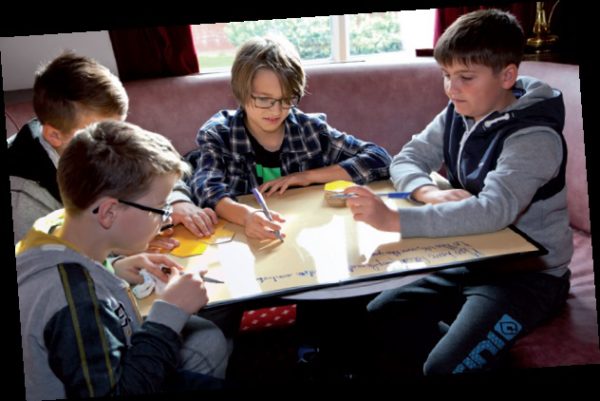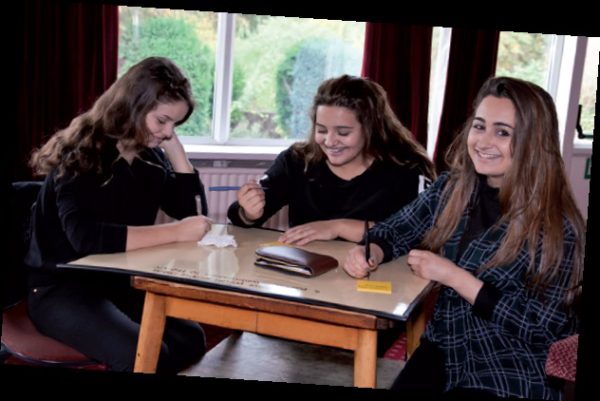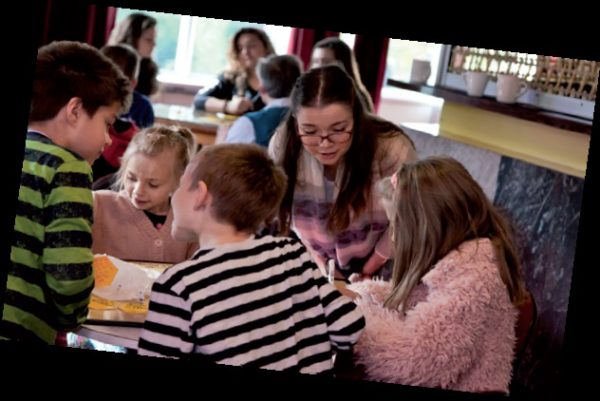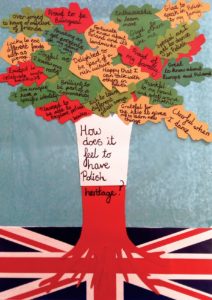To celebrate Children’s Day, which this year fell on 1 June, Brin Best presents some of the views of Polish children collected during the Poles in the UK project.
Children and young people played an important role in the Poles in the UK project, which culminated in the publication of our book last autumn. The authors and the wider project team felt it was important that the younger generation had the opportunity to provide their input to the book in several ways.
Shaping the contents of the book
We ran a special workshop at the Leeds Polish Saturday School. This gave us the opportunity to work with 39 children and young people from age 7 to age 17. Following some input from the project team, they worked in groups to explore their views on the Polish contribution to the UK. These youngsters’ ideas made a very real contribution to the contents of the book, influencing the content of chapters and providing examples that were added to the text.
Statements about their Polish heritage
Several of the youngsters who took part in the workshop, plus a few who had not attended but were inspired by it, also prepared written contributions which were included in the book. A selection of these is included in this article. Furthermore ten-year-old Adrianna Green, a fourth generation Pole, decided to present her views on her Polish heritage through a beautiful piece of artwork which is also included here.
The British on the Poles
Soham Handa, a nine-year-old British boy, provided an additional dimension by writing about his Polish friend ‘Tony’, who helped him settle into his new school in Dundee, Scotland.
Polish traces
In all areas of life in the UK, one can find examples of Poles who have made a contribution, and one can find many Polish traces. Over 10 centuries ago there ruled a king who had some Polish blood. King Canute, ruler of England and Denmark, is thought to have been a grandson of Mieszko and Dobrawa [a Polish monarch and his wife]. One cannot overlook Ignacy Jan Paderewski, a Polish pianist and composer. As an acclaimed musician, he performed for Queen Victoria. In 1919 he was the Prime Minister of Poland, and the country’s foreign secretary. After World War II broke out, Paderewski joined the Polish Government in Exile. Although Polish football does not usually see any particular triumphs, other clubs are keen to hire or buy our players, such as Marek Saganowski. Grzegorz Rasiak and Tomasz Kuszczak also spent a few years in the UK playing in Manchester. The most well known Polish players are probably Maciej Żurawski and goalkeepers: Artur Boruc and Jerzy Dudek. I could write about many more Poles – but what is important is that they all show that one’s
Polish heritage is rooted deeply in a person, and emigration cannot change this.
Emilka Solny (age 9)
Shared history
Polish people come to the UK to find employment and in hope of a better life. Us children learn a new language and meet friends of different nationalities, and learn about their cultures and traditions. Poles have contributed to the UK through our shared history, and by working and developing the economy and industry. Although life is better in England, us Poles often feel lonely and we miss our families and close ones. Poles open Polish Centres and schools to learn our language, history and culture, and therefore they feel more united.
Radosław Kolator (age 10)
Did you know…?
A famous scientist, Maria Skłodowska-Curie, wasn’t French as some think, but in fact Polish. She was the woman who pioneered the use of x-rays and found two elements which now have their place in the periodic table [Polonium and Radium]. Did you know that a golf cart, a paraffin lamp, a bulletproof vest, the walkie-talkie and a mine detector were all invented by Poles?
Anna Cieśluk (age 10)
Helpful Poles
Polish people came to the UK to help. They came here to help in World War II, and then they opened shops and restaurants. Many Poles came to the UK after 2004 because the borders opened – Poland joined the European Union. A large proportion of the Polish community in the UK start by working in factories to make a dignified living. Those who have a skill, such as bakers, mechanics, hairdressers or doctors, start their own companies. This way they create workplaces so that they can employ other people.
Zuzanna Malka (age 8)
Oak trees are a sign of strength and my picture of an oak tree represents the strength of my links with my Polish heritage, from the roots to it being something I hold dear to my heart. The Union Jack represents the land that has now become home–the UK. Each leaf represents different feelings, all of which are as important as the next and represent my love for my Polish heritage.
Text and artwork by Adrianna Green (age 10)
My Polish friend Tony
 I was six when I first met Tony. He was from Dundee, on the east coast of Scotland, where I was living at the time. Tony was in my class at primary school. He used to play rugby with Dundee Eagles and I started to enjoy playing rugby with him and then training with the team myself. I was new to the school and he started to show me around because he was my buddy. He was a nice friend. Sometimes I met him after school to play in the park too. Tony taught me some Polish words and he brought some Polish foods into class, such as special Polish chips. He made me feel more at home and settled at my new school – he helped me a lot. Tony was an epic friend!
I was six when I first met Tony. He was from Dundee, on the east coast of Scotland, where I was living at the time. Tony was in my class at primary school. He used to play rugby with Dundee Eagles and I started to enjoy playing rugby with him and then training with the team myself. I was new to the school and he started to show me around because he was my buddy. He was a nice friend. Sometimes I met him after school to play in the park too. Tony taught me some Polish words and he brought some Polish foods into class, such as special Polish chips. He made me feel more at home and settled at my new school – he helped me a lot. Tony was an epic friend!
Soham Handa (age 9)
***
 The texts and artwork by children and young people in this article were first published in the book Poles in the UK: A Story of Friendship and Cooperation (by Brin Best & Maria Helena Żukowska, 2016).
The texts and artwork by children and young people in this article were first published in the book Poles in the UK: A Story of Friendship and Cooperation (by Brin Best & Maria Helena Żukowska, 2016).
For more details, and to download a free eBook PDF version of the book, visit the Poles in the UK Facebook page and www.polesintheuk.net.






